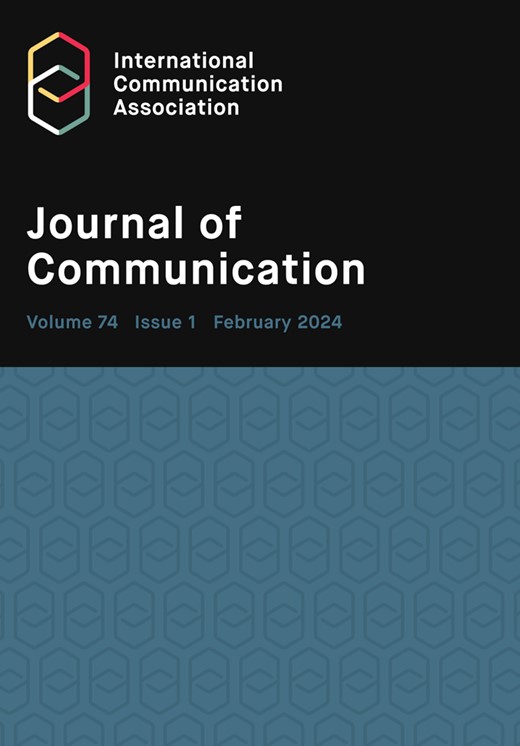Anticolonialism and qualitative methods for culture-centered interventions
IF 5.5
1区 文学
Q1 COMMUNICATION
引用次数: 0
Abstract
In this essay, we a collective of Indigenous, Black, and migrant Global South scholars engaged in experiments with the culture-centered approach (CCA) draw on our lived experiences amidst struggles against land grab, neoliberal extractivism, and capitalist exploitation to outline a framework for qualitative methods as anticolonial politics. We begin by exploring the interplays of colonialism, imperialism, and racial capitalism that have shaped the origins and uses of qualitative methods toward serving extractive agendas of global capital. This critique serves as the basis for outlining the key principles of the CCA, turning to voice, storytelling, and embodied action as the basis for situating qualitative methods amidst anticolonial struggles that resist settler colonialism and extractive neoliberal neocolonialism. Through our review of diverse culture-centered interventions, we explore the roles of voice infrastructures in anticolonial resistance, outlining the contribution made by the CCA to decolonizing research methods by offering a theoretical-methodological framework for communication interventions for social justice.以文化为中心的干预的反殖民主义和定性方法
在这篇文章中,我们一群土著、黑人和移民全球南方学者参与了以文化为中心的方法(CCA)的实验,利用我们在反对土地掠夺、新自由主义榨取主义和资本主义剥削的斗争中的生活经验,勾勒出一个定性方法作为反殖民政治的框架。我们首先探索殖民主义、帝国主义和种族资本主义的相互作用,这些相互作用塑造了定性方法的起源和使用,以服务于全球资本的采掘议程。这一批评是概述CCA关键原则的基础,将声音、故事和具体行动作为在反殖民主义斗争中定位定性方法的基础,这些斗争反对定居者殖民主义和掠夺性新自由主义新殖民主义。通过对各种以文化为中心的干预措施的回顾,我们探讨了语音基础设施在反殖民抵抗中的作用,概述了CCA对非殖民化研究方法的贡献,为社会正义的传播干预提供了理论方法框架。
本文章由计算机程序翻译,如有差异,请以英文原文为准。
求助全文
约1分钟内获得全文
求助全文
来源期刊

Journal of Communication
COMMUNICATION-
CiteScore
11.60
自引率
5.10%
发文量
41
期刊介绍:
The Journal of Communication, the flagship journal of the International Communication Association, is a vital publication for communication specialists and policymakers alike. Focusing on communication research, practice, policy, and theory, it delivers the latest and most significant findings in communication studies. The journal also includes an extensive book review section and symposia of selected studies on current issues. JoC publishes top-quality scholarship on all aspects of communication, with a particular interest in research that transcends disciplinary and sub-field boundaries.
 求助内容:
求助内容: 应助结果提醒方式:
应助结果提醒方式:


